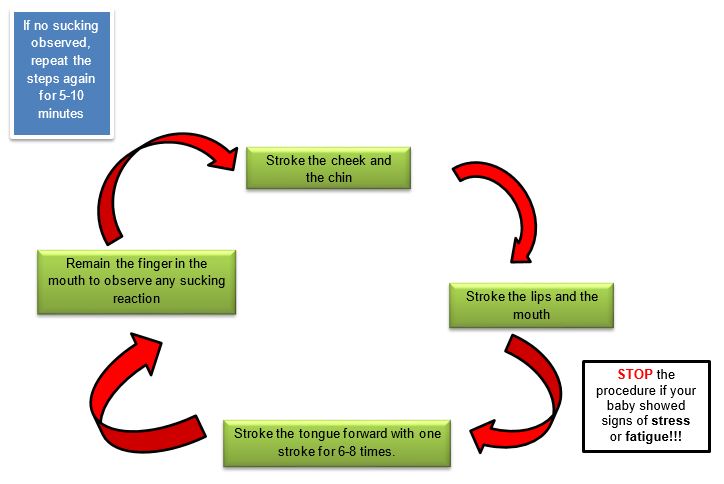Introduction
Feeding difficulty is commonly presented among infants and young babies in Neonatal Intensive Care Unit (NICU). The populations with feeding difficulty include such as:
- Premature infants
- Infants with medical conditions

What is Feeding Difficulty?
Feeding difficulty is when an infant failed to get an adequate nutritional intake for growth development and has poor weight gained.
The problem occurs within a month or more under 6 months of age.
Common feeding difficulty among infants in NICU such as:
- Has difficulty to coordinate sucking, swallowing and breathing
- Prolong feeding
- Easily fatigue before finishing feeding time
- Oral sensation difficulty
- Aspiration during feeding
- Medical and physical condition


Source: pixcooler.com
The needs of nutrition for infants in NICU
Infants in NICU require supplementary feeding tube to supply the nutrition to the body.
Enteral feedings are given when the infant’s gestational system is ready and able to receive breastfeeding or formula.

There are two types of supplementary feeding tube:
- Feeding tube through the mouth (orogastric – OG) or through the nose (nasogastric – NG)
- Parenteral Nutrition (PN)Nutrition is given through the vein. This method is used when infants do not have the gestational system to process the nutrition
What are the early interventions that can be given to infants in NICU with feeding problem?
- Sucking stimulation for infant
At the age of 32 weeks of gestational age, the infant’s sucking reflex can be stimulated. Below is the sequence on how you can stimulate sucking reflex to your baby.

Source : synapse.koreamed.org - Non-nutritive Suck (NNS)
NNS is encouraged for premature infant specifically. Let your baby suck your finger, pacifier or empty breastfeeding.
Sucking pattern during NNS is sounding like an organized burst and pause in between. NNS is a foundation for nutritive sucking (NS).
-
Finger sucking
- Sucking on pacifier
- Feeding on empty breast
-
The Roles of Speech-Language Therapist in NICU
SLT plays an important role in assessing the pre-feeding skills and for infants who is still not yet able to be fed orally. Feeding assessment and program for infants with feeding problems in the NICU are such as below:
- Pre-feeding consultation
- Oral motor program/ oral motor consultation
- Feeding assessment and modification
- Feeding intervention
- Parent’s and caregiver’s education
Involvement from the team is important in improving the quality of care for infants in NICU.
References
- Boone, A. NICU to Home: A Perspective on Feeding Difficulties. Retrieved from http://handtohold.org/resources/helpful-articles/nicu-to-home-a-perspective-on-feeding-difficulties/
- Dewier,J.L. The Speech-Language Pathologist’s Role in The Neonatal Intensive Care Unit. Spring. Retrieved from http://opensiuc.lib.siu.edu/cgi/viewcontent.cgi?article=1277&context=gs_rp
- WordPress.com. Dysphagia in The NICU. Retrieved from https://dysphagiainthenicu.wordpress.com/common-feeding-issues/
| Last Reviewed | : | 28 August 2020 |
| Writer / Translator | : | Nurshahira bt. Razali |
| Accreditor | : | Wahida bt. Mohd Abd Wahab |
| Reviewer | : | Nadwah bt. Onwi |







